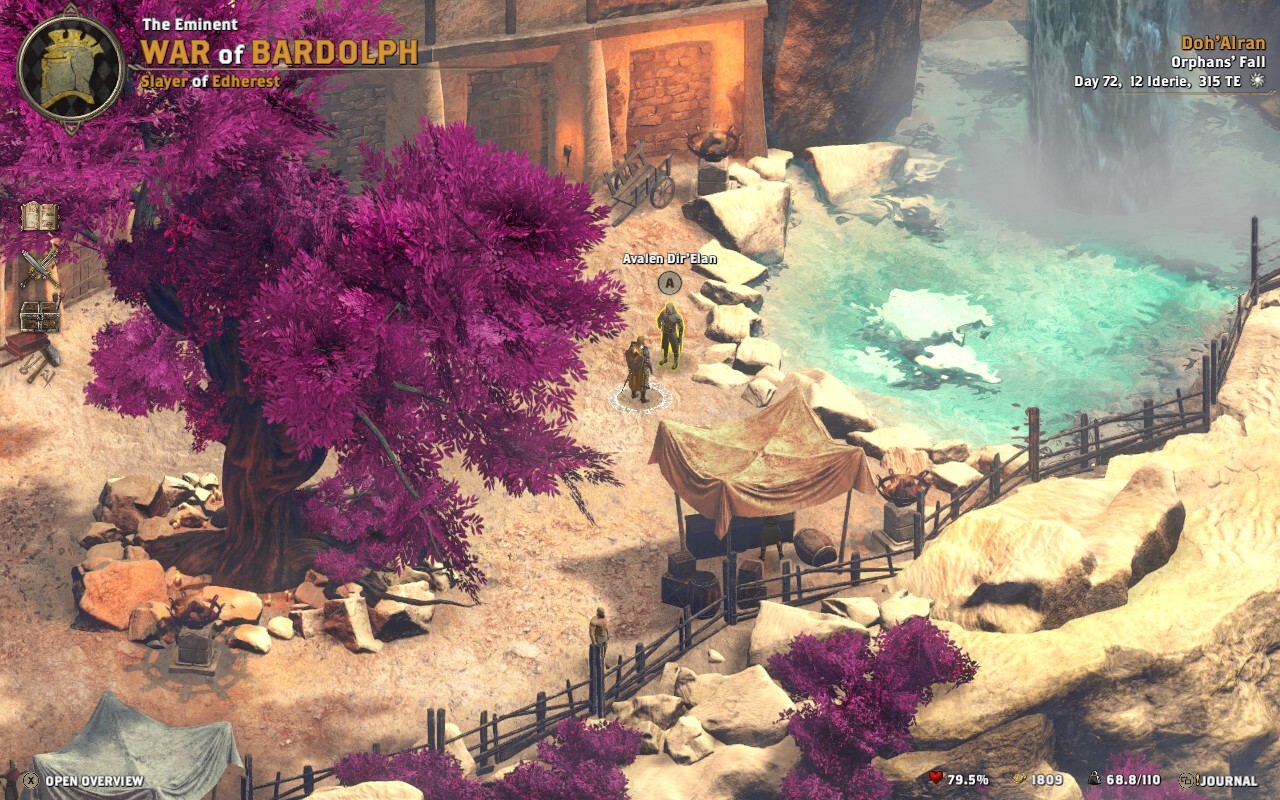
Alaloth is a strange beast: it's a sprawling isometric RPG both immediately familiar and unlike anything I've played before. It's as indebted to Diablo as it is to the ye olde Infinity Engine games, but it's also unmistakably inspired by Dark Souls. It's a weird hybrid that took me a long time to come to grips with, but after five or so hours its rhythms started to make sense. After two years in early access, Alaloth: Champions of the Four Kingdoms released into 1.0 earlier this month.
Character creation offers four races (humans, elves, orcs, and dwarves), four fighting styles (one-handed and shield, dual wielding, polearms and heavy weapons) and a bunch of different character backgrounds. Every race has a different starting city, so as a neutrally aligned human with sword and board I start in the city of Goldport, though elves start in Thilaris, for example. There are three alignments too—good, neutral, and evil—which are consequential right out of the gate because my choice determines who I can recruit as companions.
So far, so classic RPG. Also par for the course is the evocative-albeit-confusing exposition of the game's opening minutes: Some fantasy problems of mortal consequence are happening in the sprawling land of Plamen. Plamen is harassed and harangued by the angry god Alaloth, which exacerbates already existing tensions between its four rivalrous kingdoms. I'm meant to collect some artifacts which are, of course, spread across Plamen's gargantuan expanse.
Be that as it may, my most pressing concern is the getting of loot and levelling up, so after picking up a bunch of quests in Goldport, out into the open world I go. Alaloth's world is presented as a world map with many dozens of locations I can enter. Time passes as I move around on this map, and there are enemies I can either fight or evade. When I fight I'm thrown into a small arena against a handful of enemies, and these fights usually take around a minute to complete. The world is rich with landmarks: there's a lot to see and do despite each landmark, city or locale being relatively small and self-contained.
Combat is where the Dark Souls inspiration shows. Make no mistake: this is not a mouse-button-breaking ARPG in the vein of Diablo or Path of Exile. There is stamina management, all-important dodging, parrying, and the risk of a quick death if I play carelessly. It's usually fun and satisfying, with a generous parry window offsetting some of the imprecision brought by an isometric perspective. It can be frustrating too: it doesn't seem possible to draw out enemies one by one (an important Soulsborne tactic), and if I'm forced to take on more than four enemies at once at close range, it can be hard to see exactly what's going on. I can zoom in a little, but not enough to bring any clarity to especially busy scraps.
Fighting is done during the aforementioned encounters on the world map, but the combat-oriented substance of Alaloth is in its "fighting areas". These are basically dungeons, usually but not always tied to a questline, and crucially, completing them is the only way to level up. If I die in a fighting area I'm thrown back to a sanctuary and have to start the whole thing again, providing I have the equipment and potions I need. This is far from guaranteed: equipment degrades by one point every time I die, so if I make too many failed attempts I'm likely to break the weapon I'm using, or the actually-helpful belt I'm wearing. Repair kits aren't super hard to come by, but it's easy to be caught off-guard. And there's every possibility I've already chewed through all my healing potions, though it's possible to brew them if I have the right ingredients and recipe.
Fighting areas are ranked according to their difficulty, and for a long time I was struggling to complete even the first one, Raven's Hideout, due to the aforementioned problem of being mercilessly ganked. It turns out that recruiting companions is basically essential—unless you're a genius gamer—and finding these companions is a matter of exploring Plamen, talking to everyone, and hoping the companion I encounter shares my placement on the good / bad / neutral plane.
Eventually I find Iln-Ashah, a powerful guy with a cool spell that sends mini-hurricanes hurtling into the combat fray. As soon as I've met Iln-Ashah, the Raven's Hideout turns into a cakewalk, as do the following three combat areas I tackle in ranked order. But finding him was a bit of a hassle, and in the true spirit of both old school CRPGs and Soulsbornes, I'm not given much in-game direction on how to find a good companion (nor whether it needs to be night or day for him to appear).
Once I've found a companion it's possible to have a second player command him in local co-operative play, which would be really fun if not for the fact that, in its early hours at least, Alaloth isn't super combat heavy. A lot of time is spent just exploring and completing quests which, while they don't give me XP, usually fill my coffers with gold and loot. It's clear a lot of effort has been put into worldbuilding in Alaloth, though most of it is lost on me, who—perhaps incorrectly—approached this game as a loot game. It is a loot game, but it's a slow, complex and demanding one.
I played Alaloth's "single player" mode, but there's also a competitive mode that pits the player against three AIs also striving to find the artifacts central to the narrative. Whereas the former is a more traditional, unrushed RPG experience, the latter increases the pressure by adding not only a race to the finish, but the possibility of having to confront adversaries in possession of artifacts I need.
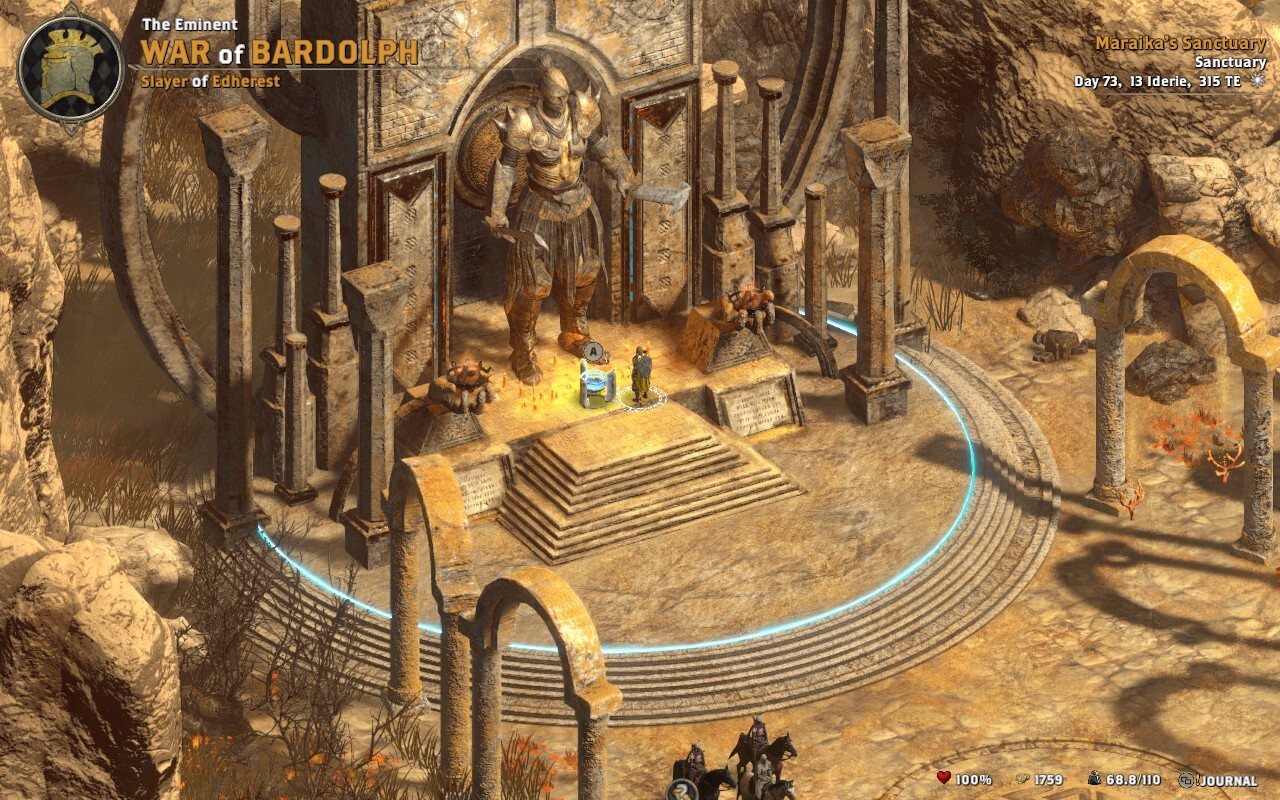
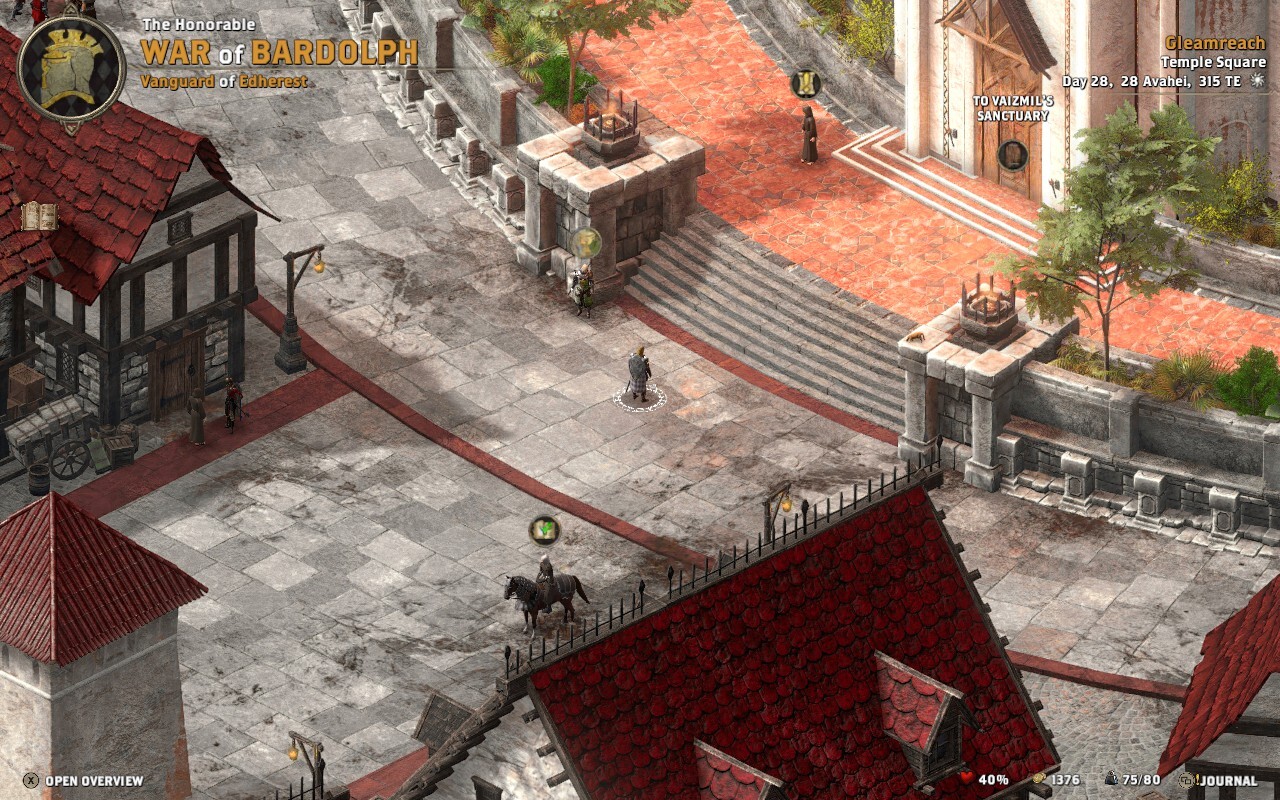
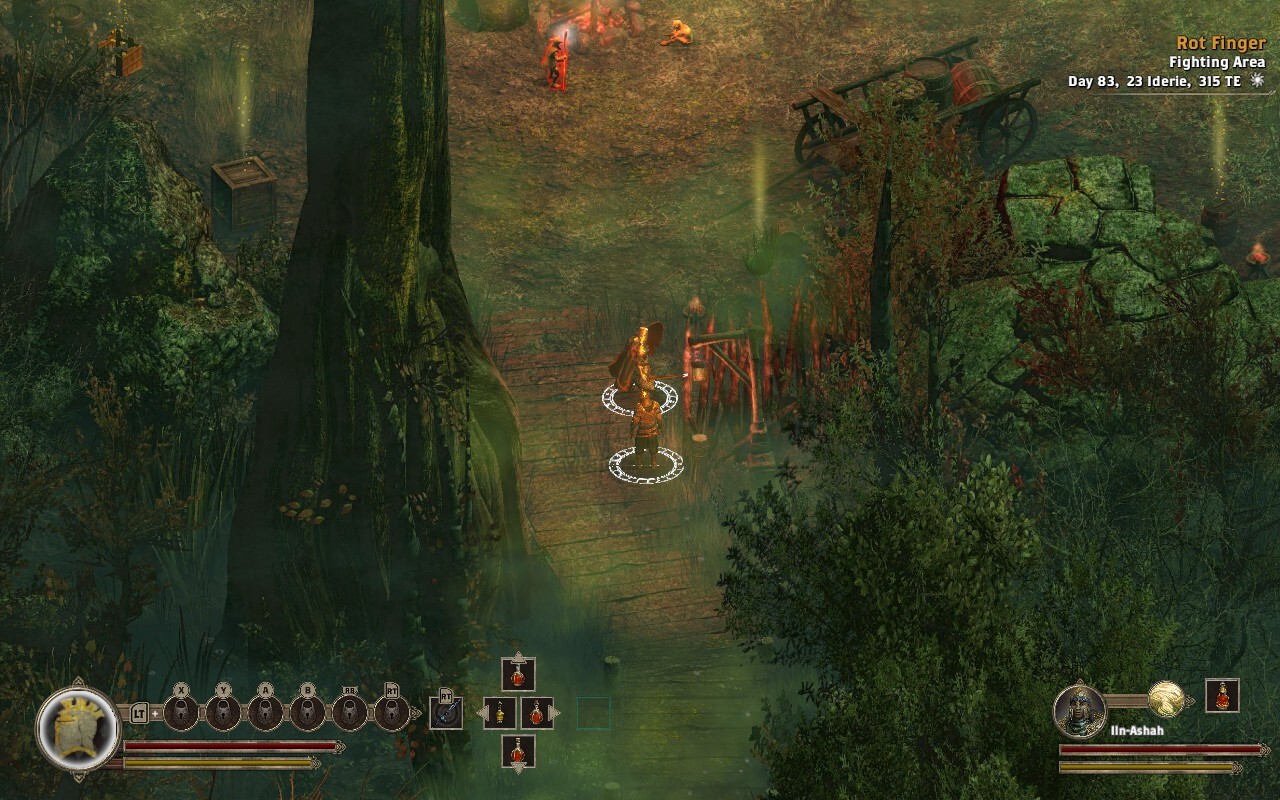
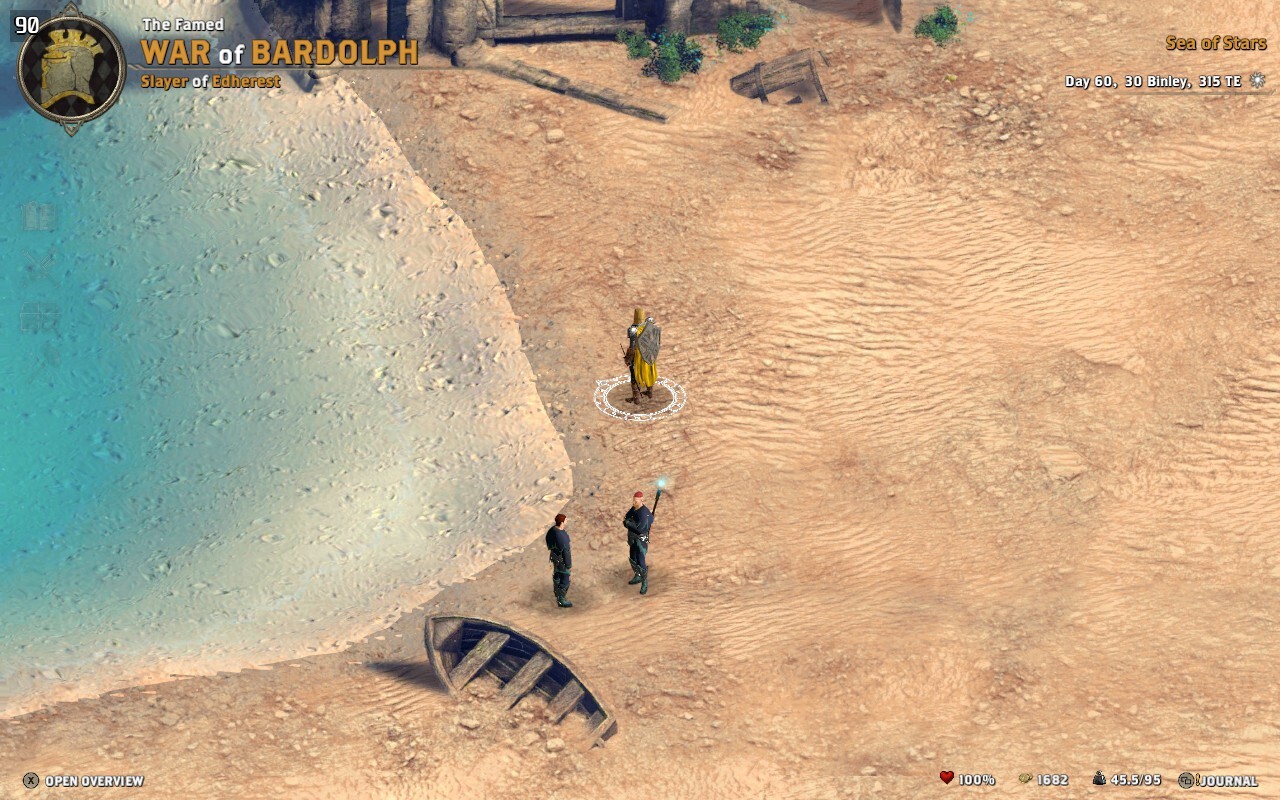
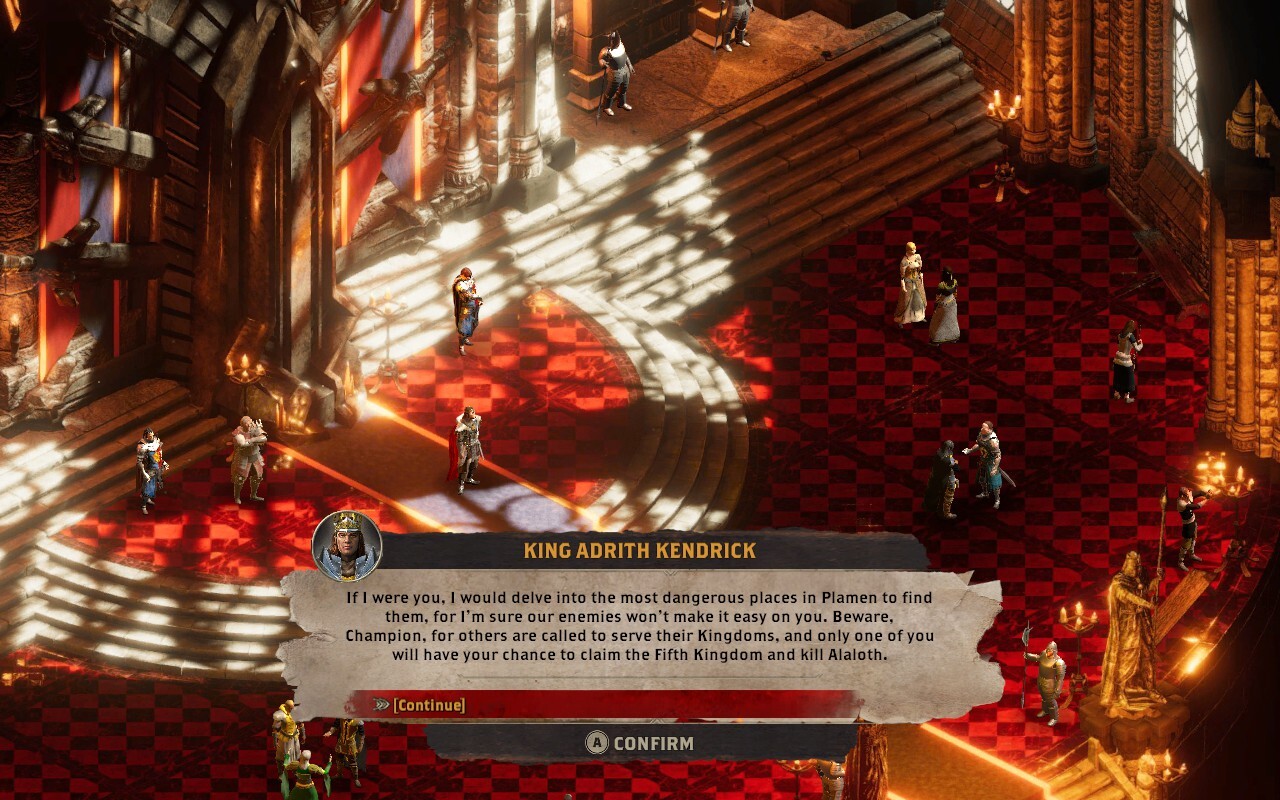
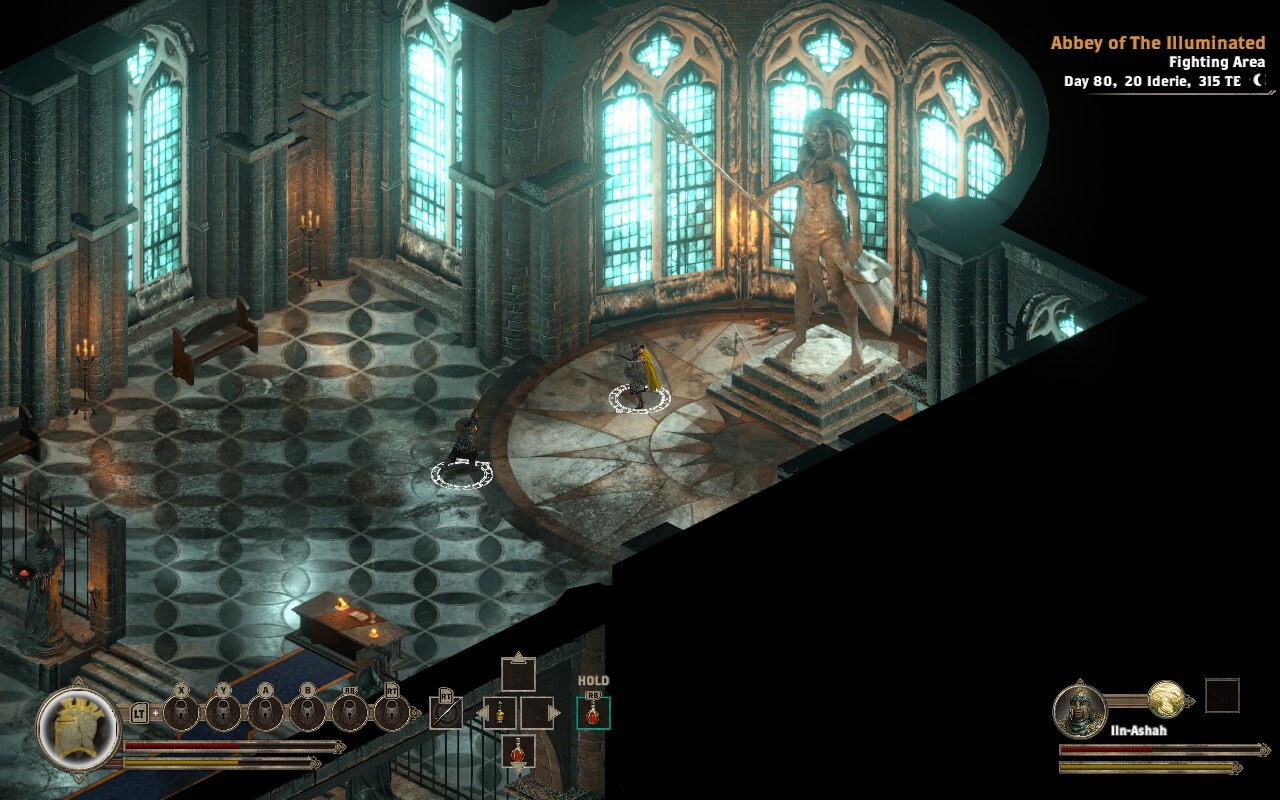
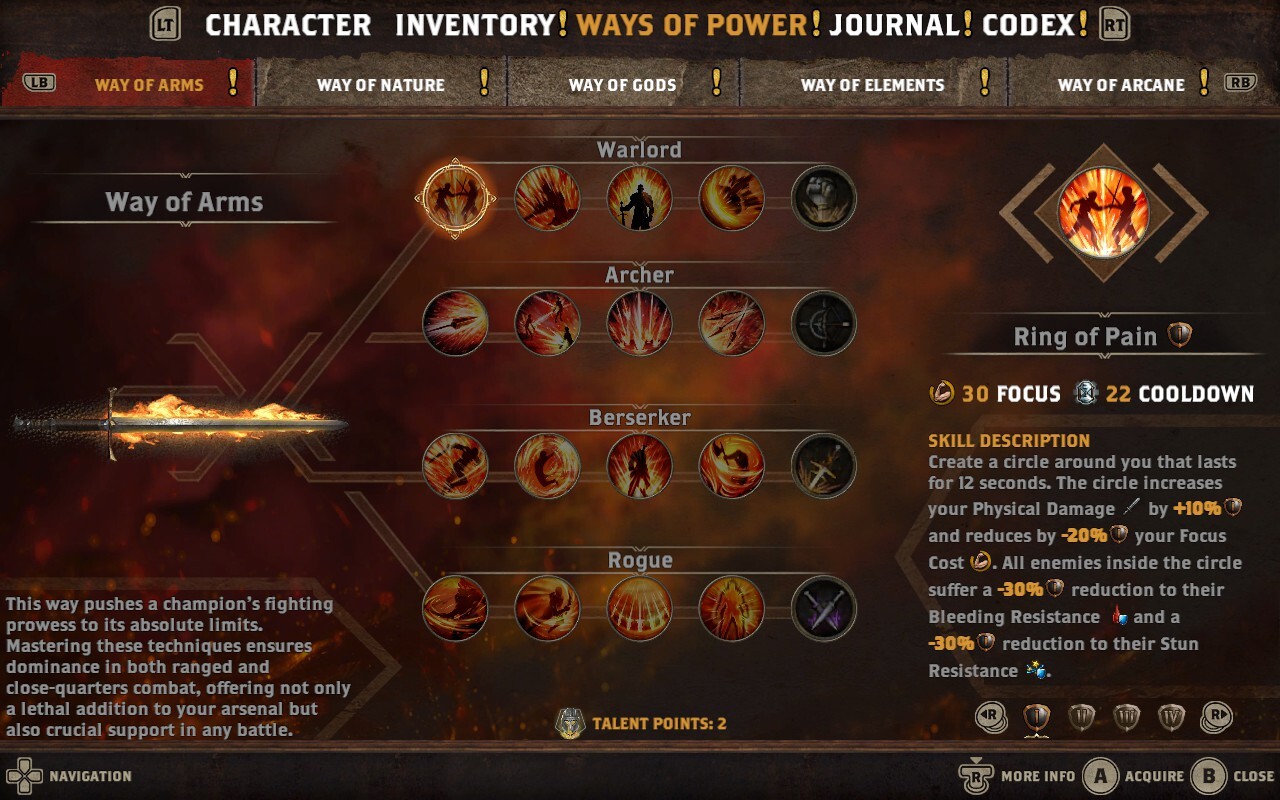
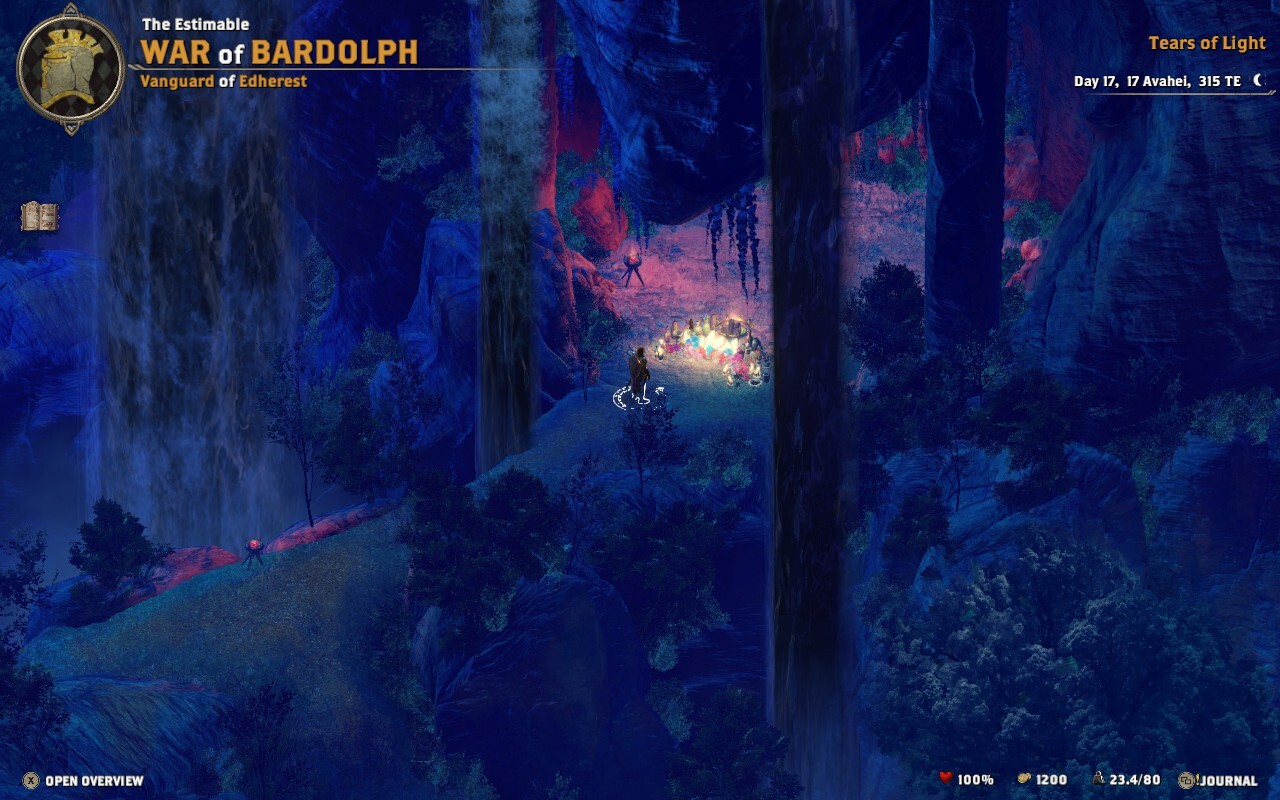
I admire this scrappy, distinctive game. A lot of effort has been made to create a genuinely refreshing take on a well-explored genre path. It's also really beautiful: these isometric worlds have an ethereal painterly quality, and I was constantly astounded by the detail and variety of its many locations. By contrast, the UI is weirdly busy and quite unbecoming, but I quickly made peace with it.
Alaloth had a turbulent development period, so I'm especially impressed that it was built by a team of seven. I can imagine it sucking up hundreds of hours of my life, given that each race has its own campaign, with all the narrative and build variations that would entail. After nearly eight hours with the game I'm fairly confident there's nothing else quite like it on Steam, and it's an experiment that—somewhat against the odds—Gamera seems to have pulled off.







